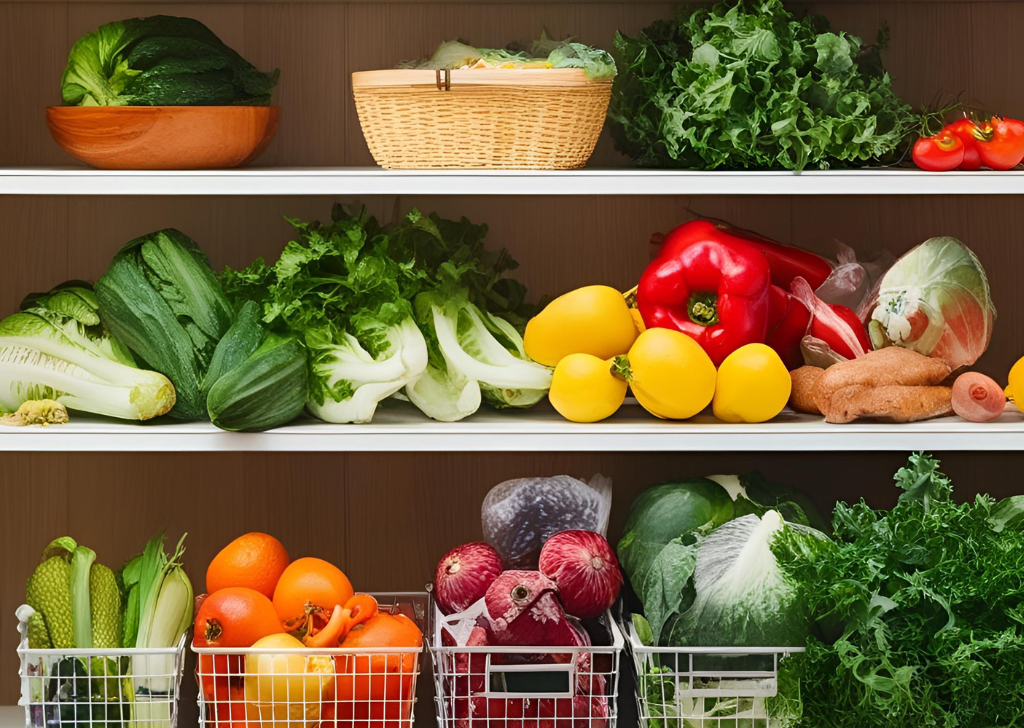A lot of households want to save money on groceries, but this does not necessitate giving up nutrition or taste. Consumers may stretch their food budgets without sacrificing taste or freshness by using a few insightful methods and keen purchasing techniques.
Create a Grocery List
Weekly meal planning is one of the best ways to save on grocery expenses. You may construct a detailed grocery list that helps you prevent impulsive purchases and minimize food waste by planning your weekly meals. This method guarantees that you eat a balanced diet every day of the week, in addition to saving money.
Buy Groceries Around Off-Peak Hours
The amount of time you spend in-store and the caliber of your experience can be greatly impacted by the timing of your supermarket trips. The least busy periods are usually early in the morning and late at night, which facilitates aisle navigation and speeds up checkout.
Additionally, stores are frequently better supplied during these hours, making it less likely that customers would miss out on sought-after goods. Additionally, shopping when it’s quieter reduces distractions, which helps you concentrate on following your plan and avoiding pointless purchases.
Comparing Prices and Shop Around
Comparing expenses between different stores is worthwhile in addition to exploring new places to shop. It could surprise you to learn that one grocery shop may have cheaper vegetables while another may be offering a discount on its homemade goods. Finding the greatest bargain on meat products, for example, compared to which shop is better for fruits and veggies, may be worth the effort. Nevertheless, the ultimate savings will likely depend on how much exploration you want to do.

Choose Store Brands
Using grocery chains’ own-brand or value items instead of premium or branded ones might save you up to a third of your monthly grocery shopping. Store-brand items are frequently on par with name-brand ones.
Price is typically the primary distinction between supermarket-owned brands and high-end, branded goods. It is worth checking to determine if supermarket own-brand products measure up to branded ones because they frequently equal branded items in taste testing. You may regularly save money by choosing these less expensive products. Trying store-brand items can result in large savings without losing quality because many of them are made by the same enterprises that make name brands, and they have identical quality requirements. You can always inspect the ingredients listed on the back if you are unsure. You may still attempt another inexpensive option if you discover they fail to live up to your taste standards.

Shop for Seasonal Produce
Selecting food in season is the simplest yet most efficient method to save on shopping expenses. Since they are more readily available and need less shipping, seasonally grown fruits and vegetables are more affordable. Try to purchase fruits and vegetables that are in season since they are frequently fresher and less expensive than out-of-season food. Find fresh, in-season produce at reasonable costs by visiting farmers’ markets or neighborhood produce stands. Then, use these items in your cooking to save money and relish the freshest flavors of the season. It is also recommended that you consume fresh produce, which is also healthy for you.
Shop in Bulk
Shopping in bulk will be another major advantage to you if you are someone who is trying to save money on groceries. Purchasing in bulk can save money, particularly for non-perishable goods, but always check the unit pricing to see whether it makes sense. If you have more than you can consume before they expire, think about splitting bulk purchases with friends or family and storing products appropriately to preserve freshness. Bulk items usually cost less per unit, which, if you add them annually, would save you a ton of money.
Avoid Shopping When Hungry
Spending too much money is certain when you shop when you are hungry. Everything appears more appetizing when you’re feeling hungry, so you’re more inclined to reach for processed foods, refreshments, or convenience items that have not been on your list. These impulsive purchases frequently have no place within your meal plans and might raise your expenses. Attempt to eat something before you go to prevent this. Once you’ve satisfied your hunger, you’ll be more in control of what you add to your cart, keeping to your list and avoiding overpriced snacks that might break your wallet.
Avoid Buying Processed Meals
Convenience may make it easy to go for processed meals, but it is crucial to balance price and nutritional content. Single-serve or prepackaged foods, such as precooked meals or individual snack packs, may save time, but they are frequently more costly than making your food and purchasing in bulk. The price premium placed on convenience foods cover the additional expense of preparation and packaging. Consider purchasing larger packages and splitting them into smaller portions to consume at home rather than purchasing individual quantities. Over time, even a little effort might result in significant savings, especially if you frequently buy convenience meals or snacks for either school or work. Processed meals frequently add sugars, salts, and preservatives, which may be harmful to your health over time. Prepare healthy meals ahead of time, focusing on foods that are nutrient-rich and can be easily prepared.
Reduce Food Waste
Minimizing food waste benefits both the environment and your finances. Thoroughly plan your meals to prevent purchasing more groceries than you are going to require, and preserve perishables to prolong their shelf life. To prevent your leftovers from being sent to trash, utilize them inventively by creating new dishes or adding them to salads, soups, or stews.
Utilize Coupons
When utilized properly, coupons may be an excellent opportunity to save money. Use coupons for things you would normally purchase and that you truly need. Avoid coupons that encourage you to purchase pricey, useless things. To get the most out of your coupons, arrange them before you go shopping and remember when they expire.





